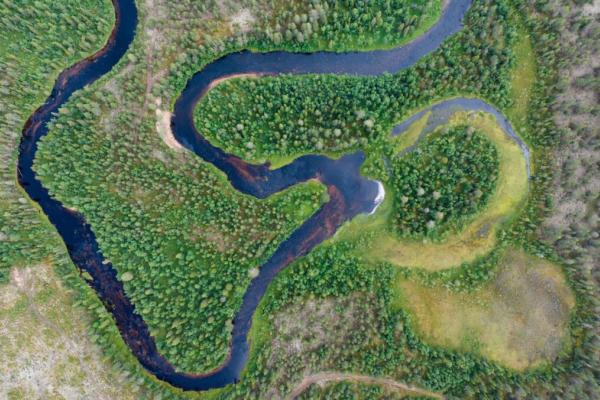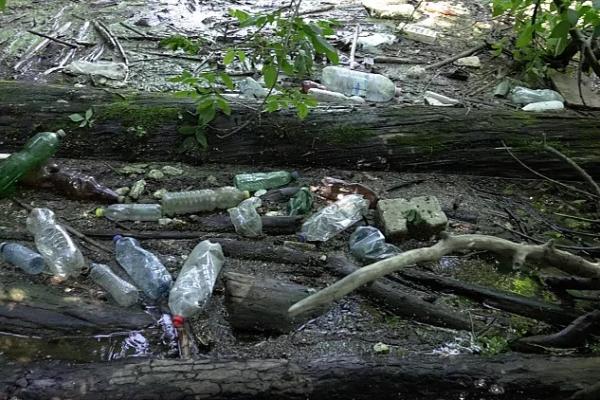The need for international action
Addressing the triple planetary crisis of climate change, biodiversity loss and pollution, as well as other global environmental challenges, requires efficient international cooperation. Most environmental problems also have a transboundary nature.
For this reason, the Lisbon Treaty establishes that one of the key objectives of the EU policy on the environment is to promote measures at international level to deal with regional or worldwide environmental problems. The EU therefore plays an active role in the elaboration, ratification, and implementation of multilateral environmental agreements.
MEAs ratified by the EU
The EU has already ratified many multilateral environmental agreements. These are at global level (multilateral agreements negotiated under the auspices of the UN), at regional level (for example in the context of the UN Economic Commission for Europe or the Council of Europe), and sub-regional level (for instance for the management of seas or transboundary rivers).
The matters addressed by these agreements are very wide. See below the full list of multilateral agreements to which the EU is a Party.
- UNECE Convention on Transboundary Effects of Industrial Accidents (1992)
- Bonn Agreement for cooperation in dealing with pollution of the North Sea by oil and other harmful substances (1983)
- Lisbon Cooperation Agreement for the Protection of the Coasts and Waters of the North-East Atlantic against Pollution (1990)
- Aarhus Convention (1998) on access to information, public participation in decision-making and access to justice in environmental matters and its Kyiv Protocol on Pollutant Release and Transfer Registers (2009)
- Espoo Convention on Environmental Impact Assessment (1991)
- Alpine Convention (1991) and its protocols
- Convention on Biological Diversity - CBD (1992)
- Cartagena Protocol on Biosafety (2003)
- Nagoya Protocol on Access to Genetic Resources and the Fair and Equitable Sharing of the Benefits arising from their Utilization (2010)
- Convention on International Trade in Endangered Species of Wild Fauna and Flora - CITES (1973)
- Bonn Convention on the Conservation of Migratory Species - CMS (1979)
- Agreement on the conservation of African-Eurasian Migratory Waterbirds -AEWA (1995)
- Bern Convention on European Wildlife and Habitats (1979)
- International Tropical Timber Agreement -ITTA (1994)
- Agreement on the Protection and Sustainable Development of the Prespa Park Area (2010)
- Convention for the Conservation of Antarctic Marine Living Resources - CAMLR (1980)
- Barcelona Convention for the Protection of the Marine Environment and the Coastal Region of the Mediterranean (1976) as amended and its protocols
- Helsinki Convention on the Protection of the Marine Environment of the Baltic Sea Area (1992)
- OSPAR Convention for the Protection of the Marine Environment of the North-East Atlantic (1992)
MEAs in the 8th Environment Action Programme
The 8th Environment Action Programme (8th EAP), which builds on the European Green Deal, is the EU’s legally agreed common agenda for environment policy until 2030. It forms the basis for achieving the environmental and climate objectives defined under the United Nation’s 2030 Agenda and its Sustainable Development Goals. It aligns with the goals of the Paris Agreement, the Rio Conventions, and the other existing multilateral environmental agreements.
The 8th EAP has the long-term priority objective that by 2050 at the latest, people live well, within the planetary boundaries in a well-being economy where nothing is wasted, growth is regenerative, climate neutrality in the Union has been achieved and inequalities have been significantly reduced.
To support the global uptake of this priority objective, the EU
- supports third countries to adopt and implement ambitious climate and environmental rules
- ensures that all products placed on the EU market fully comply with relevant EU requirements
- fosters sustainable corporate governance and international environmental governance
- enhances cooperation with governments and stakeholders in third countries and international organisations to form partnerships and alliances for environment and climate protection
- leads by example in international fora
For more information
Daily coverage of sustainable development and climate negotiations and events around the world, documenting global efforts to tackle global environmental challenges.
One-stop portal for information on MEAs - searchable by key terms across treaty texts, COP decisions, national plans and reports, laws, court decisions and more. Also offering free online introductory courses to the main conventions.






